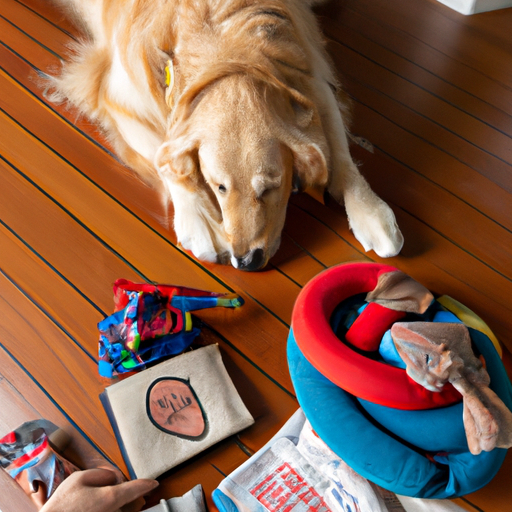Hello fellow caregivers, I am here to help you navigate the tricky waters of your dog’s separation anxiety. As the saying goes, “dogs are man’s best friend” and when that friend becomes anxious when you’re not around, it can be heart-wrenching.
Understanding Separation Anxiety in Dogs
Separation anxiety in dogs can manifest in many ways – from destructive behavior to excessive barking or whining. Let’s dive into the signs and symptoms of separation anxiety in dogs:
- Excessive barking or howling
- Destructive behavior, such as chewing furniture or personal belongings
- Accidents in the house despite being house trained
Remember, your pet isn’t being ‘bad’. They are simply expressing their discomfort and confusion in the only way they know how.
Identify the Triggers
Every dog is an individual and what triggers anxiety in one may not in another. Common triggers include:
- Changes in family routine or structure
- Moving to a new home
- An extended period of time spent with the family, followed by sudden alone time
Identifying your dog’s specific triggers can be key in helping alleviate their anxiety.
Establish a Calm Departure and Arrival
The dramatic departure or arrival can often trigger anxiety in dogs. Here are some tips to ensure a calm environment:
- Keep your departures and arrivals low-key: Avoid emotional goodbyes and hellos.
- Establish a calming routine before you leave: This can be a short walk or a quiet cuddle session.
Training and Conditioning
Training and conditioning can go a long way in easing your dog’s separation anxiety.
- Counter-conditioning: This involves changing your dog’s response to the triggers. For example, if your dog gets anxious when you pick up your keys, start by picking up the keys but not leaving.
- Desensitization: This involves gradual exposure to the trigger. Start by leaving your dog alone for short periods of time and gradually increase the duration.
| Step | Duration |
|---|---|
| 1 | 5 mins |
| 2 | 10 mins |
| 3 | 30 mins |
| 4 | 1 hour |
| 5 | 2 hours |
Consider Professional Help
If your dog’s separation anxiety is severe, consider seeking help from a professional. This could be a certified professional dog trainer, a board-certified veterinary behaviorist, or a certified applied animal behaviorist.
Frequently Asked Questions
Q: How long does it take to ease separation anxiety in dogs?
A: It varies from dog to dog and depends on the severity of the anxiety. It could take weeks to months.
Q: Can medication help with my dog’s separation anxiety?
A: In some cases, medication may be beneficial. However, it should be used in conjunction with behavioral modification and only under the guidance of a veterinarian.
Q: Are certain breeds more prone to separation anxiety?
A: No specific breed is more prone to separation anxiety. It depends on the individual dog and their experiences.
Remember, you are not alone in this journey. With patience, love, and possibly professional guidance, you can help your furry friend navigate their anxiety. And in doing so, deepen the bond between you.



